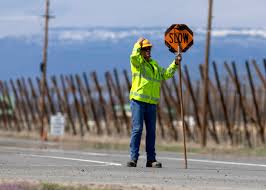
DENVER, July 19, 2025 — New data shows Colorado’s construction industry continued to shed jobs last month, highlighting the mounting workforce challenges that contractors say threaten major infrastructure and manufacturing investments statewide.

Between May and June, Colorado lost an estimated 1,300 construction jobs, according to the Associated General Contractors of America (AGC). The state’s decline mirrors a wider trend, with construction employment falling in 25 states and the District of Columbia over the same period.
Ken Simson, AGC’s chief economist, linked the drop to stepped-up immigration crackdowns and an ongoing slowdown in legal worker pipelines. “Without access to qualified workers, contractors will have trouble delivering vitally advanced manufacturing, infrastructure, power, and data center projects,” Simson said in a statement Friday.
The short-term losses echo a deeper trend. Between June 2024 and June 2025, Colorado’s construction sector shed 5,100 jobs, AGC found — an indicator that tight labor availability may persist even as the state’s demand for new housing, data centers, and energy projects remains strong.
Industry leaders are sounding the alarm that aggressive immigration enforcement is colliding with a generational labor shortage, creating a crunch that could slow everything from roads and bridges to battery factories and renewable power plants.

“The administration can’t achieve its ambition of bringing back manufacturing jobs without enough construction workers with the right skills to build new plants and other structures needed to support them,” said AGC CEO Jeffrey Shoaf. “That can’t happen unless there are worker authorization programs that allow hiring construction workers on a timely basis.”
In Colorado, the labor crunch comes just as massive federal and private investments are flowing into energy transition infrastructure, large semiconductor expansions, and data center builds along the Front Range. Many of these projects hinge on timely delivery of new plants, warehouses, and transmission lines — work that can’t move forward without skilled crews.
Contractors say delays in federal worker authorization or legal pathways are already pushing up labor costs and threatening project budgets. Smaller firms report having to turn down bids for lack of manpower, while others are paying premiums to attract or retain skilled tradespeople.
According to AGC, states with large immigrant construction workforces — including Colorado, Texas, and California — are among the most exposed to these disruptions. Nationally, roughly one in four construction workers is foreign-born, and in Colorado, immigrant workers are particularly concentrated in key trades like concrete, framing, and finish carpentry.
AGC is urging policymakers in Washington to expand visa programs or temporary worker permits to shore up the construction pipeline. Industry leaders also warn that if worker shortages continue, costs for taxpayers could climb as projects stall or budgets are revised upward to cover labor gaps.
Despite the drop in construction employment, Colorado’s overall economy remains strong — but contractors say more work is on the books than there are workers to deliver it. Unless immigration bottlenecks ease, they say, housing supply and critical economic projects could hit avoidable roadblocks.
Originally reported by Abraham Jewett in Yahoo News.